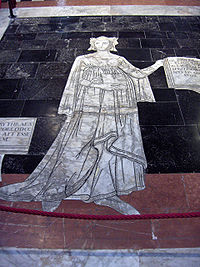
 |
Freethought & Rationalism ArchiveThe archives are read only. |
|
|||||||
|
|
Thread Tools | Search this Thread |
|
|
#21 | |
|
Contributor
Join Date: Mar 2006
Location: Falls Creek, Oz.
Posts: 11,192
|
Thankyou for all the great responses.
 In the spirit of textual criticism there may be another way to save Tertullian. Does anyone know if Tertullian believed in the prediction of Christianity by the Sybil? This may explain Tertullian's advanced thinking. In the spirit of textual criticism there may be another way to save Tertullian. Does anyone know if Tertullian believed in the prediction of Christianity by the Sybil? This may explain Tertullian's advanced thinking.  A number of sources state that Christianity was first heralded to the world by means of the prophecies of the Erythraean Sibyl  Lactantius, Divinae institutiones I.6.8, 14 Augustine, De civitate dei xviii.23 Isidore, Etymologiae viii.8.1, 3, 4 Quote:
"Pagans & Christians" (or via: amazon.co.uk) --- Robin Lane-Fox |
|
|
|
|
|
#22 | ||
|
Veteran Member
Join Date: May 2008
Location: Metro Detroit, MI
Posts: 3,201
|
Quote:
Perhaps he is even using the reign of augustus as the marker which gives him another 40 years (I do not beleive this to be the case but since everyone is finding all sorts of random reasons to round down, I am going the other way) 
|
||
|
|
|
|
#23 | ||
|
Veteran Member
Join Date: May 2008
Location: Metro Detroit, MI
Posts: 3,201
|
Quote:
Since the birth of Christ is likely over 200, to say under 250 and 300 is correct. Whatever text you are butterflying in to come to the conclusion that he does not beat around the bush can also be used to determine that he is aware of the time of the writing of Corinthians, the life of Paul, his association with the apostles and their association with the person of Jesus of Nazareth. |
||
|
|
|
|
#24 |
|
Veteran Member
Join Date: Sep 2004
Location: Birmingham UK
Posts: 4,876
|
I would tentatively suggest that Tertullian is a/ dating the origin of Christianity from the birth of Christ and b/ dating the birth of Christ sometime during the reign of Augustus without wanting to get into the issue of exactly when during the reign of Augustus Christ was born.
Hence he avoids saying "200 years have not yet passed..." because that might involve him in irrelevant disputes as to the precise date of Jesus' birth. Andrew Criddle |
|
|
|
|
#25 | |
|
Veteran Member
Join Date: May 2008
Location: Metro Detroit, MI
Posts: 3,201
|
Quote:
|
|
|
|
|
|
#26 | |
|
Veteran Member
Join Date: Jan 2007
Location: Mondcivitan Republic
Posts: 2,550
|
I didn't look any closer than the old Roberts/Donaldson Ante Nicene Fathers edition, which dated it between 215 and 217, near the end of T's period of activity.
Dating T's works is notoriously difficult, exept for some clues that indicate the relative order of composition of several. Timothy David Barnes, in Tertullian: A Historical and Literary Study (1985)*, dates Ad Nationes and Adversus Judaeos to the summer of 197. This does presently seem to be the consensus, although these decisions seem to be driven mainly by what the critics think indicates pro or anti Montanist sympathies. I guess the old critics of 150+ years ago thought that the very stern position T takes in Ad Nationes toward the heathen, and even other Christians, as a sign that this was in his super snitty days when he supposedly quit the proto Orthodox but also the Montanists as too namby pamby and formed his own sect, which was near latter part of his life. For instance, in Ad Nationes 1.13 he accused fellow Christians of Sun worship because of their praying to the East and because of making Sunday a day of festivity. As for who all the 'you's and 'we's refer to, that is tough to do through a translation, and I cannot read Latin. However, if in doubt, look about. All one has to do is read any of the undisputed letters of Paul to see long, complicated sentences in which the subjects and objects are not explicitly stated, but must be linked to a person or place or subject mentioned earlier. Often these are MUCH earlier, separated by loads of digressions, etc. Tertullian seems to be able to do that kind of thing too. Getting back to dates, just lop off 20 years from my measurements. I firmly believe in making sense of what is there, rather than what we want to be there. 59 BCE to 197 CE is about 255 years. 49 BCE to 197 CE is about 245 years. 44 BCE to 197 CE is about 240 years. 29 BCE to 197 CE is about 225 years. etc. BTW, nothing is "obvious" or we'd all be in agreement. DCH *Tertullian: A Historical and Literary Study (or via: amazon.co.uk) Quote:
|
|
|
|
|
|
#27 | ||
|
Veteran Member
Join Date: May 2008
Location: Metro Detroit, MI
Posts: 3,201
|
Quote:
|
||
|
|
|
|
#28 |
|
Veteran Member
Join Date: Jan 2007
Location: Mondcivitan Republic
Posts: 2,550
|
Translators, especially in the 19th & 20th century, imagined everything revolved around Christ and Christians. The wish makes the interpretation happen.
If a writer seems to quote a passage from the bible that represents a variant not approved by the prevailing translation, then the citation is made to conform to the AV (KJV). Translators jazz up translations all the time. DCH |
|
|
|
|
#29 | |
|
Veteran Member
Join Date: May 2008
Location: Metro Detroit, MI
Posts: 3,201
|
Quote:
|
|
|
|
| Thread Tools | Search this Thread |
|